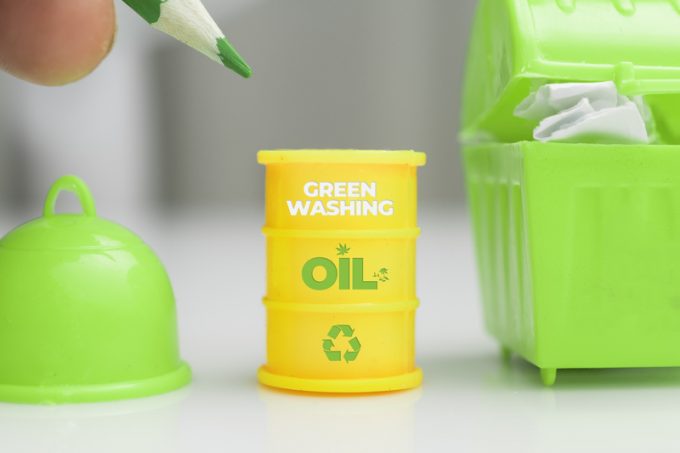NOCC adds third ‘ammonia-ready’ PCTC newbuild orderbook
Norwegian Car Carriers (NOCC) has added a third ‘ammonia-ready’ 7,000ceu LNG-powered ship to its two-vessel, ...
TFII: SOLID AS USUALMAERSK: WEAKENINGF: FALLING OFF A CLIFFAAPL: 'BOTTLENECK IN MAINLAND CHINA'AAPL: CHINA TRENDSDHL: GROWTH CAPEXR: ANOTHER SOLID DELIVERYMFT: HERE COMES THE FALLDSV: LOOK AT SCHENKER PERFORMANCEUPS: A WAVE OF DOWNGRADES DSV: BARGAIN BINKNX: EARNINGS OUTODFL: RISING AND FALLING AND THEN RISING
TFII: SOLID AS USUALMAERSK: WEAKENINGF: FALLING OFF A CLIFFAAPL: 'BOTTLENECK IN MAINLAND CHINA'AAPL: CHINA TRENDSDHL: GROWTH CAPEXR: ANOTHER SOLID DELIVERYMFT: HERE COMES THE FALLDSV: LOOK AT SCHENKER PERFORMANCEUPS: A WAVE OF DOWNGRADES DSV: BARGAIN BINKNX: EARNINGS OUTODFL: RISING AND FALLING AND THEN RISING

As if ‘green’, ‘grey’, ‘blue’ and ‘brown’ were not confusing and loaded enough, the fuels landscape is already a dishonest one, with deceptive practices among fuel suppliers, and their shipper customers either unwittingly or knowingly playing along, experts say.
Opportunity Green CEO Aoife O’Leary, in conversation with The Loadstar, explained: “The sustainable aviation fuel (SAF) label is just an incredible marketing coup by the aviation industry,” she said. “There is no such thing as SAF right now. ‘SAF’ is everything from dodgy palm oil and other deforestation-based fuel, you’ve got some used cooking oil in there, there’s a wide range. But it’s pitched as though it is one fuel, meaning regulators can say, ‘we’ll promote sustainable aviation fuel’.
“We just don’t have enough [feedstock] to make anything like the amount we need for aviation, never mind if we’re talking about shipping as well. And unfortunately in the EU, we’ve been putting them in cars for decades, which is just a complete waste of biofuel.”
GoodFuels, which provides biofuel for shipping and aviation, has previously told The Loadstar that better utilisation of biofuel feedstocks – including those not traditionally considered like sewer fatbergs – will bring about sufficient supply to cover all of shipping’s needs. However, the European Commission has taken the stance that biofuel would be better routed away from shipping. Ms O’Leary agrees.
Instead, she says, it should go to aviation. “We just don’t have the supply of sustainable biofuel that makes sense to put it in shipping. It’s a waste of the very short supply we have… Shipping can use [green] ammonia or [green] methanol, or less energy dense fuels. Aviation needs a liquid fuel so that they can get that thrust to get off the runway. So that is where it should go. But I would caveat that with, if it’s not a sustainable biofuel, it shouldn’t be produced or be used anywhere.”
But if the aviation industry is deceiving itself with SAF, something very similar is happening in shipping, with LNG. “It blows my mind,” says Ms O’Leary. “Part of the industry has managed to delude itself that you can decarbonise by moving from fossil oil to fossil gas.
“If you want to use LNG, go ahead. You want to meet your sulphur targets – I can understand that. Just don’t tell me you’re doing it for the climate.
“The science is very clear now.
“If you are looking at investments in reducing climate impact, and your answer is LNG… that’s money that could have been spent on putting wind on your ship, improving your propeller, or actually looking at green hydrogen. So what you’re actually doing is basically creating stranded assets.”
Has shipping been conned, or is it doing the conning?
“The latter. Very intelligent people work in shipping. To the extent that any have actually been conned into using LNG — I have concerns about how they got their jobs.
“The problem is the shipping industry is so linked to the fossil fuel industry. It’s where many shipping companies get a lot of their business.”
Last month, MSC, the world’s largest shipping line by tonnage, opted for ten LNG-fuelled vessels at Zhoushan Changhong International Shipyard, making its orderbook of LNG powered vessels 60 out of 74 total vessels. Subsequently, MSC joined lobby group Sea-LNG, whose board includes representatives of Total and Shell, and whose membership consists of at least 14 fossil fuel and petrochemical companies.
As to Ms O’Leary’s opinion on the real fuel of the future – it will have something to do with hydrogen. “It could be green methanol, green ammonia, it could even be hydrogen directly… but we know that whatever that future fuel is, it will be produced from green hydrogen.
“In fairness to Maersk, it is doing what it can. But ultimately, it is just one company and the rest of the industry seems to be kind of standing back and waiting to see what happens — understandable if you don’t have regulation.
“Initial IMO strategy is still not quite 1.5[°C] aligned, there are no measures to back it up yet, and on the IMO’s own timeline, they won’t come into force until 2027. So to achieve a 30% reduction in emissions by 2030 with a measure coming in in 2027, I mean, that measure either has to be incredibly stringent or it’s not gonna do anything, right?
“The shipping industry’s favourite line is, well, we’re a global industry, we need global regulation. Well, now you’ve got a very clear global target. Are you, as an industry, going to move to ensure that it’s met?”
Comment on this article